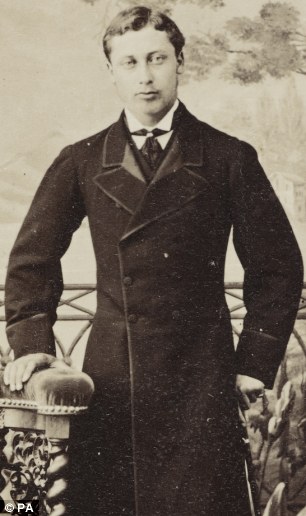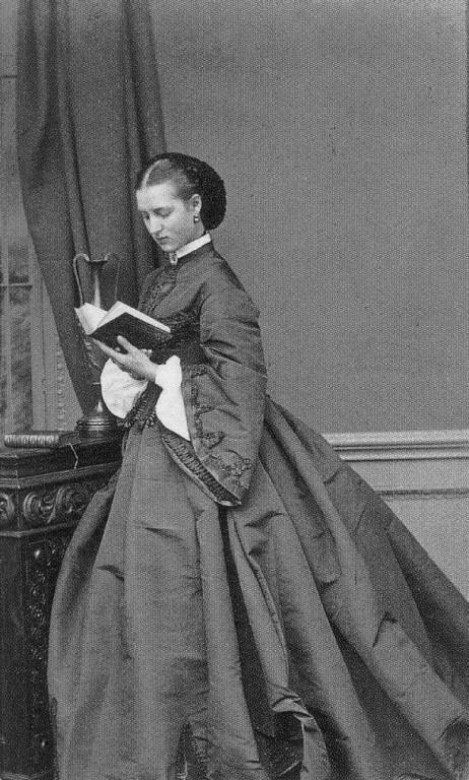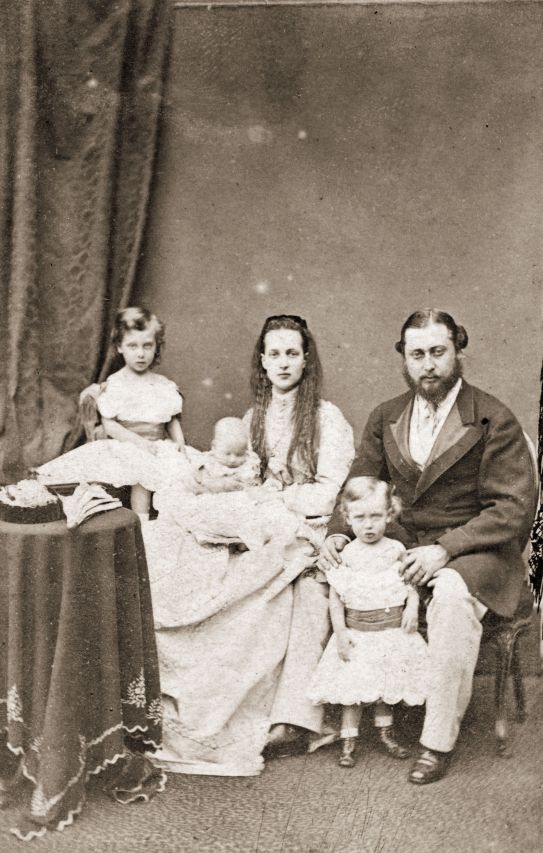
There have been comparisons made between Edward VII and Queen Alexandra of Denmark to Prince Charles and the late Diana, Princess of Wales. Like Charles, Edward, or Bertie as he was known intimately, found himself waiting for the throne far longer than anticipated. Both men are the eldest sons of monarchs with the longest-running reigns in British history, Elizabeth II only having surpassed Queen Victoria in 2015.
Both men had to create some semblance of a life for themselves from within a role that dictated and entitled them to nothing, while still constricting their movements and options. Setting aside fortune, it’s service with tepid reward. Both men caused embarrassment to the monarchy with their personal lives. And both men showed themselves quite capable of rising to the occasion, showing an astute comprehension of what skills they brought to the table and how best to wield them.

There were many that underestimated Bertie as heir, and yet he was actually a very decent king; one that, arguably, helped to postpone World War I. While Queen Victoria became known as the “Grandmother of Europe,” Bertie was its uncle. The marriages of his siblings, nieces, nephews and daughter gave the British Royal Family reach into Germany, Spain, Romania, Norway, Denmark, Greece, Sweden and Russia – useful leverage when one considers how radically government evolved over the course of the late 19th and early 20th centuries.
As for Alexandra, or Alix, and Diana, both were known for being remarkably beautiful, emulated and admired around the world for their style and elegance. Both were also party to marriages plagued with consistent infidelity. We know how Charles and Diana ended, but had they existed a century or so earlier, their marriage might have looked a bit like Bertie and Alix’s, for whom divorce was incomprehensible.
Alix faced far less options in how she handled her husband, and for all that her time as Princess of Wales and queen was tinged with sadness, Bertie and Alix were not wholly unhappy with one another. That said, they were also fortunate not to have manage as harsh a scrutiny from the British public, as well possessing appears to have been a genuine affection for one another that survived six children and nearly five decades of marriage.

They met for the first time in September 1861 on a visit to Speyer arranged by Bertie’s older sister, Vicky, who was married to Prince Frederick of Prussia. Their parents, Queen Victoria and Prince Albert, were eager to marry Bertie off, their anxiety for his future always remarkably high. Alix wasn’t the first choice, but the German alternatives provided to Bertie were flat out rejected by the prince, who showed little to no interest in marrying at all. But Queen Victoria had felt the same way prior to marrying Albert, a decision that markedly altered her lifestyle and, in her opinion, enhanced her responsibility, respectability and happiness. In short, they wanted a wife to settle Bertie down as it had his mother and the Danish princess would do in a pinch.
A letter Queen Victoria wrote to Vicky two years prior sums up her thoughts on her son:
“I tremble at the thought of only three years and a half before us – when he will be of age and we can’t hold him except by moral power! […] He is improving very decidedly – but Oh! it is the improvement of such a poor or still more idle intellect. Oh! dear, what would happen if I were to die next winter. It is too awful a contemplation. […] Still we must hope for improvement in essentials; but the greatest improvement I fear, will never make him fir for his position. His only safety – and the country’s – is his implicit reliance in everything, on dearest Papa, that perfection of human beings.”
Healthy stuff all around.

Alix was 16 in the fall of 1861. She had been born in Copenhagen’s Yellow Palace on December 1, 1844 to Prince Christian of Schleswig-Holstein-Sonderburg-Glücksburg and his wife, Louise of Hesse-Kassel. (Fun fact: Louise was the great-granddaughter of Princess Mary of Great Britain, daughter to King George II). She and her siblings were brought up simply, neither of their parents coming from great fortune, and their futures up in the air. It wasn’t until 1852, when Denmark faced a succession crisis over the accession of the childless King Frederick VII, that Prince Christian was named his heir. In the interim, Alix lived with her family at Bernstorff Palace, waiting for the day when her father would be called to rule.
Before Alix was deemed ready to meet the Prince of Wales, she was unofficially inspected by Vicky, who reported back to the Queen:
“She is a good deal taller than I am, has a lovely figure but very thin, a complexion beautiful as possible […] You may go far before you find another Princess like Princess Alix […] Oh, if only she was not a Dane […] I should say yes – *she* is *the* one a thousand times over.”
With marked reluctance Bertie agreed to meet Alix, and though he reported back to his parents that she was both agreeable and attractive, he continued to drag his feet on declaring he would propose one way or the other. Two months later his parents would learn why: He had formed an attachment to a low-born actress named Nellie Cliffden, which though it may not have been emotional, was certainly sexual. Victoria and Albert were horrified, having gone out of their way to protect the moral purity of their children.

Albert would visit his son at Sandhurst that November and within a month he was dead from Typhoid, devastating his wife who plunged herself into an all-consuming mourning that would last 40 years. For Bertie that meant not only losing a father, but gaining a wife. Queen Victoria saw to it that all of her late husband’s wishes were carried out and, knowing he had approved of Alix, so their son would have her. The engagement was announced on September 9, 1862 and the couple were married on March 10, 1863.

During their betrothal, Queen Victoria demanded to “inspect” Alix, warning that she must meet her before the wedding, “so that I could judge, before it was too late, whether she will suit me.” Whether she or Bertie would suit each other was, naturally, of second tier importance. Alix, for her part, resented what was less of an invitation and more of a summons. While she was issued an introduction into the Queen’s private residence of Osborne House on the Isle of Wight, her father, who had accompanied her to England, was not and he was forced to stay in a local hotel. It was a graceless move on the part of Queen Victoria, who felt that enough honor was being done to the Danes by allowing their daughter to marry her son.

From the start, the marriage was not without controversy. The British public had anticipated a lavish royal wedding for their future king and what they got was a private ceremony held within the Windsor compound at St. George’s Chapel. Queen Victoria hadn’t lifted mourning on the British court and guests were only allowed to wear grey lilac and mauve, while only Alix’s closest relatives were invited to view the ceremony. It was not quite the dog and pony show the Danes had expected when one of their own married the future king of the British empire.

The match also complicated life for their matchmaker, Vicky, who was sharply criticized in Prussia for having promoted a match with a Dane instead of a German. The matter was not helped when, six months after the wedding, Alix’s father finally ascended the Danish throne as King Christian IX and the German Confederation took the opportunity to invade the disputed lands of Schleswig-Holstein to which both they and Denmark believed they had claim. The situation put the British government – and its Royal Family – in the difficult position of navigating the expectation of its Princess Royal (Vicky) and its future queen consort (Alix).

It was less trying for Bertie, who chose to openly support his wife and the Danish cause, irritating his sister and exasperating his mother. But to his credit, and indeed rather tellingly of his later abilities, Bertie accurately caught wind of public opinion, for the British were strongly opposed to the German action. When Prussia eventually won out it sparked an abiding resentment in Alix for all things German, which must have been downright exhausting given the BRF’s close ties to the region. Her feelings would be further wounded when, in 1866, Bertie’s younger sister, Princess Helena, married Prince Christian of Schleswig-Holstein, further throwing in the RF’s lot with the German cause.

Eight months after the wedding Alix gave birth prematurely to a son, christened Prince Albert Victor after Bertie’s parents. He would be followed by five more children, George, Louise, Victoria, Maud and John, the last of whom would live for less than 24 hours. Alix was a natural mother and took marked joy in her children. Compared to her mother-in-law and most upper-class British women, she was incredibly hands-on, thinking nothing of directly overseeing bath and bed time, following the example of her own mother. It was a mentality wholly foreign to the Queen, who had found pregnancy, babies and the day-to-day of child-rearing distasteful at best.

Nor was that Alix’s only quality which vexed Victoria, who had hoped to see a personality transplant in her son following his wedding. Instead, Alix loved socializing, hosting, hunting and fashion, throwing herself head-first into London society, a move which may have endeared them to certain circles and won goodwill from the public, but which only called attention to the increasing reclusiveness of the Queen.

During Alix’s third pregnancy, which resulted in the birth of her eldest daughter, Princess Louise, she contracted a rheumatic fever which nearly cost her her life and left her with a permanent limp. Somewhat bizarrely, at this point Alix was so widely-admired as a style icon that women began adopting her limp so as to further emulate her.
By the late 1860s the Waleses’ marriages had begun to cool. From the start Bertie kept mistresses, usually women from within their social circle, putting Alix in the position of facing her husband’s infidelity with, if not friends, then certainly women she had to be prepared to host, interact with and see on a regular basis. By some estimates, Bertie’s liaisons ran upwards of 50 women, the most famous of which came later in life and included the actress Lillie Langtry, socialite Lady Randolph Curchill (Winston’s mother) and Alice Keppel (an ancestor of the Duchess of Cornwall, which is not without its irony).

What really put off his wife, though, was an incident in 1869 in which Sir Charles Mordaunt, a Member of Parliament, threatened to name the Prince of Wales in his divorce suit against his wife, Harriet Moncreiffe. Harriet had been carrying on affairs throughout their three-year marriage, however in 1869 she gave birth to an illegitimate daughter and confessed all of her escapades to her husband, who was understandably furious. Harriet’s father claimed she was insane and, like clockwork, the young woman began exhibiting the signs of mental instability, perhaps so as to sidestep a family scandal (though, they were well-past that particular point). Bertie was called to testify and he “confessed” that he had, indeed, visited Lady Mordaunt, but the visits were friendly and platonic.

Alix was unimpressed and the couple appeared to be on the outs for well over a year. The incident, which was reported on by a press that had been without a good royal scandal for years, also came on the heels of the death of the infant Prince John, their only child not to reach adulthood. Queen Victoria, obsessed with grieving, ordered court-wide mourning, which annoyed a public that had grown sick and tired of what was beginning to feel like royal self-indulgence, if not abandonment, from their queen.
Luckily, for the health of his marriage at least, Bertie fell ill with Typhoid in the winter of 1871 and very nearly died, an event which had the silver lining of scaring his wife back to his side. His illness also coincided with the 10-year anniversary of Prince Albert’s death from the same disease, which prompted Queen Victoria to not only become convinced her son would die, but that the date of December 14th was cursed. The Queen’s youngest son, Prince Leopold, later described the time with:
“It was too dreadful to see the poor Queen siting in the bedroom behind a screen listening to his ravings. I can’t tell you what a deep impression it made on me.”
While Victoria herself noted on December 12th, the day on which it seemed most likely Bertie wouldn’t make it that:
“I hardly knew how to pray aright, only asking God if possible to spare my Beloved Child.”
When he finally did recover there was universal rejoicing and the Prince, as well as the extended Royal Family, enjoyed a boost in popularity.

Even so, the brief renaissance Bertie and Alix enjoyed didn’t last long. Alix was extremely disappointed when her husband embarked on a eight-month trip to India without her in 1875-1876. Left behind at their London residence of Marlborough House and Norfolk estate of Sandringham, Alix became increasingly focused on their children, leaning on them heavily for company and emotional support – a trend that would only increase as they grew older.
While Bertie was abroad, the Waleses once again became embroiled in a society divorce scandal when two friends, one of them Lord Randolph Churchill (Winston’s father and the husband of one of Bertie’s supposed mistresses), threatened Alix with Bertie’s implication in a suit. The Princess was forced to inform a livid Queen Victoria, while the Prince refused to speak to Churchill for years.

It’s unclear to what extent it would have been credible to rope Bertie into the divorce proceedings, but whatever the case was Alix took her own extended trip the following year to Greece to visit her brother. That trip, combined with her two eldest sons, Albert Victor (known as “Eddy” to the family) and George, beginning their military careers led to a three-year separation which Alix found extremely painful.

In a scenario reminiscent of what Victoria and Albert had put Bertie through, by the 1880s finding a suitable wife for Eddy was a top priority for his parents. In 1889 he had fallen in love with his first cousin, Princess Alix of Hesse, daughter of Bertie’s younger sister, Princess Alice. She refused his proposal and instead became engaged to the future Tsar Nicholas II of Russia, eldest son of Alix’s younger sister, Dagmar. His second choice was Princess Helene of Orleans, a French Catholic, with whom he was so in love he swore he would renounced his place in the succession so as to be able to marry. Her father, however, refused to approve the engagement, which would have required her to convert to the Church of England. It came to naught.
On December 3, 1891 Eddy became engaged to Mary of Teck, a great-granddaughter of George III. While it’s unlikely there was much more than friendly affection between them, the wedding was set for February of the following year when the Prince fell ill with influenza and died on January 14, 1892. His claim to the throne passed to his younger brother, George, who not only stepped up in the succession, but also inherited Mary. The two were married on July 6, 1893.

Bertie and Alix were devastated by their son’s death, with Bertie writing to his mother, “Gladly would I have given my life for his.” By some accounts, Alix never fully recovered. As the Queen did with the room in which Prince Albert had died, so too did Alix keep Eddy’s bedroom, which would evolve into a shrine within Sandringham for the remainder of her life.
Queen Victoria died on January 22, 1901, finally allowing her son to ascend the throne at 59 years old. Though he had been christened with the expectation that he would reign as King Albert, he chose to be known as Edward VII. He took the crown with enormous personal popularity, which was striking given how long his mother had ruled, and how many Britons had never known another monarch besides her. Most were ready for a change, and even approaching old age, Bertie and Alix were well-liked by the public by virtue of being regularly seen.

By all appearances Bertie enjoyed ruling. He brought back many of the ceremonial duties of the monarch that his mother had refused to undertake during her widowhood, renovated the royal residences he wished to keep and sold the rest, including his mother’s beloved Osborne House. If there was a silver lining to his long service as heir, it was that it had freed Bertie up to take numerous overseas tours, and between that and the marital alliances of his extended family, he had a sense for foreign relations, understanding his own influence and how to leverage Britain abroad. When it came to his nephew, Kaiser Wilhelm II, he was successful at keeping the younger man in check, an ability whose loss was keenly felt after the King’s death.
Fond of food and smoking, Bertie increasingly suffered from poor health in the last years of his life. On April 27, 1910 he returned to Buckingham Palace from an extended holiday on which he had grown seriously ill, Alix quickly returning from a separate visit to Greece a week later. A day after her return Bertie suffered a series of heart attacks, but resisted efforts to cease working, perhaps angry that, having finally reached the throne, he was to only last such a short while on it. He was reported to say, “No, I shall not give in; I shall go on; I shall work to the end.”

Forced to bed, Alix kept vigil at his side, at times personally administering his oxygen. Remarkably, Alix signed off on Bertie’s then-favorite mistress to come visit him one last time and Mrs. Keppel was allowed within BP during his final hours. She became so hysterical at his bedside that guards had to physically remove her.
A few minutes before midnight that evening Bertie finally lost consciousness and died. Alix would later tell a friend, “I feel as if I had been turned into stone, unable to cry, unable to grasp the meaning of it all.” For over a week she refused to let anyone touch or move his body, however by May 14th she was convinced to allow the usual laying-in-state. His funeral was held in London May 17th and his coffin placed in Westminster Hall, which was left open to the public. By some estimates, close to half a million people came to pay their respects within a 48-hour period.
All told, it’s unclear to what extent passion and romance truly fueled their marriage, or how much Bertie’s infidelities wounded his. Certainly they loved and respected one another to the standards that were expected of them. They were devoted parents (within the context of their generation and social norms) and appeared to enjoy one another’s company when they were in it. Despite his constant stream of mistresses, Bertie also once remarked that Alix was the most beautiful woman he had ever seen, while Alix was devastated by his death. Likely, the Princess took the affairs in stride, not necessarily expecting faithfulness from her husband; if anything upset her, it appears to have been his time away from home, which left her highly dependent on friends and her children for compantionship.

Her son, George, once remarked that his mother, to whom he was very close, was an incredibly selfish woman. There seems to have been some truth to the assessment, and it was evident in her treatment of her middle daughter, Princess Victoria, who she actively dissuaded from marrying, preferring to have at least one child remain at home with her. With the exception of her youngest daughter, Maud, who married Prince Carl of Denmark in 1896 (and became Queen of Denmark in 1905) all of Alix’s children would remain close to her in Britain.

Historians are mixed on what Bertie’s political legacy was (which will be examined at a later date), but it can be universally acknowledged that whatever his abilities were, they were largely underestimated and unappreciated by his mother. As for Alix, the greatest role she played was in helping to establish her husband as both fashionable and social without seeming tawdry – the veneer of domesticity and respectability their marriage lent him likely kept him from appearing far worse in the eyes of the Queen and the public.

